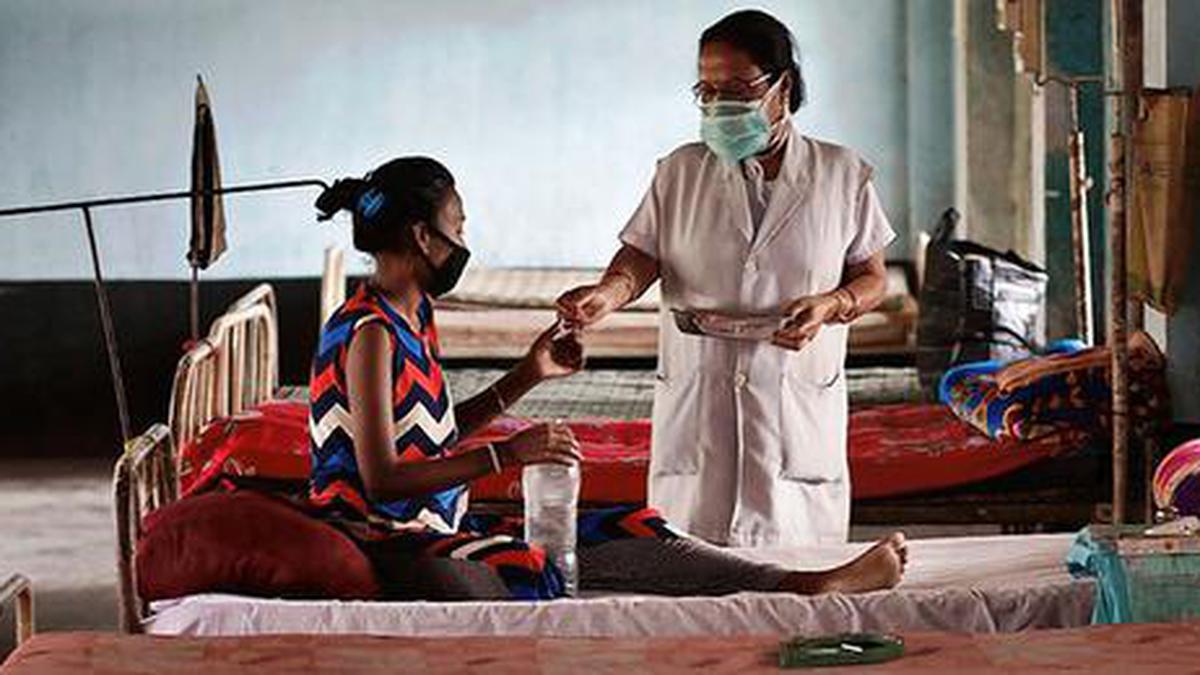
Research shows India can shorten tuberculosis treatment Premium
The Hindu
Recent studies have found that the length of time tuberculosis patients need to stay on their regimen can be reduced from six to four months. India however is yet to implement any policy that takes advantage of this option, even as its goal to eliminate TB by 2025 approaches the deadline.
Tuberculosis is a dreadful disease with a high mortality, and has consistently been a global health concern. India accounts for around 27% of TB cases worldwide – which is the world’s highest country-wise TB burden – thanks in part to its population of 1.3 billion.
In the last decade, the National Tuberculosis Elimination Programme (NTEP), along with the private sector, has successfully found and treated 17.14 million people with TB, including an estimated 1.4 million children. However, the COVID-19 pandemic adversely affected TB care and has threatened to reverse the gains made in reducing India’s burden. Additionally, the growing problem of drug-resistant TB also threatens the progress we have made in basic disease management.
TB is curable but treatment is challenging. For drug-sensitive TB, a patient must take the medication for six months, and this is a long period for most people. The treatment also includes three or four drugs that can have side effects and are also difficult to swallow at times.
This is particularly difficult when the patients in question are children, who need to abide by a fixed drug regimen under the NTEP. The size and the taste of the tablet are not child-friendly. The NTEP presently recommends a daily dose of medicines under direct observation for six months, which can be tiring for families as well.
It is not surprising that many paediatric as well as adult TB patients discontinue taking treatment due to its long duration and side effects. Sometimes, they feel better and assume that completing treatment is optional. This puts families and other people who are in close contact with a TB-affected person at risk of infection. Stopping treatment prematurely can also contribute to the TB bacteria becoming drug-resistant.
How can we address this issue? One critical way, especially in countries with a high TB burden like India, is to explore new treatment approaches for TB and to integrate them into national plans.
The effort to make TB medicines easier to take is underway worldwide, as well as in India. Recent studies in adults who have TB in their lungs considered using a combination of new drugs and existing ones that are currently used for other diseases. The results of these studies are promising, showing that the length of time patients need to stay on their regimen can be reduced from six months to four months.

Thomas Jefferson and Abraham Lincoln are two of the greatest presidents that the U.S. has seen. You probably know that already. But did you know that Jefferson made what is considered the first contribution to American vertebrate paleontology? Or that Lincoln is the only U.S. president to receive a patent? What’s more, both their contributions have March 10 in common… 52 years apart. A.S.Ganesh hands you the details…












